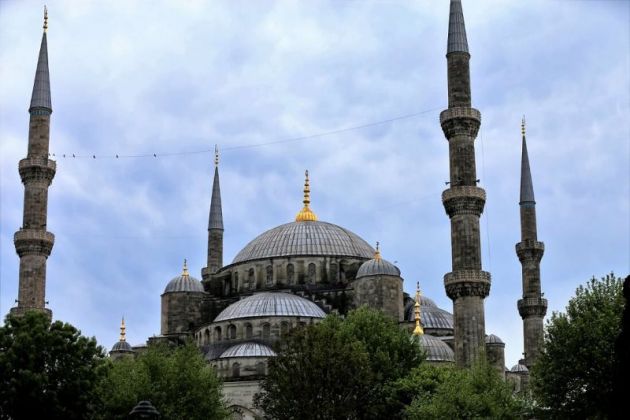Turkish president's mosque decision on Hagia Sophia evokes 'grief and dismay' at World Council of Churches

The head of the Geneva-based World Council of Churches has written to Turkey's President Recep Tayyip Erdogan expressing "grief and dismay" from WCC members at his decision to convert the world famous Hagia Sophia into a mosque.
Rev. Ioan Sauca, interim WCC general secretary, sent the letter to the Turkish president on 11 July noting that since 1934, "Hagia Sophia has been a place of openness, encounter and inspiration for people from all nations and religions.
He said it has been a "powerful expression" of Turkey's "commitment to secularism and inclusion and of its desire to leave behind the conflicts of the past."
The Turkish president announced his decision on July 10 after a court ruling said its museum status was not legal and different media-worldwide interpreted his move as one to shore up his Islamist-base in troubled times.
"Mr. Erdogan's opponents say he has raised the issue of restoring Hagia Sophia as a mosque every time he has faced a political crisis, using it to stir supporters in his nationalist and conservative religious base," The New York Times commented.
Hagia Sophia was first built 1,500 years ago as an Orthodox Christian cathedral and was converted into a mosque after the Ottoman conquest in 1453.
In 1934, however, it became a museum by Cabinet decree to underline the modern secular Turkish state founded by Kemal Ataturk and is now a UNESCO World Heritage site.
The Hagia Sophia is one of the most important Byzantine structures ever built. It holds historical significance as a culminating feature of the Christian era Roman Empire and stands as a monument to artistic and architectural achievement.
The WCC also fears the decision "will encourage the ambitions of other groups elsewhere that seek to overturn the existing status quo and to promote renewed divisions between religious communities."
Although the WCC statement did not refer to any site it might have been a reference to the al-Aqsa mosque.
The Jerusalem Post commented, "One day, Turkey could even aim its sights at Jerusalem. The speech about Hagia Sophia clearly indicated this is on the agenda in the future."
Polarizing move
Qatar-based Al Jazeera said, "The decision, however, has once again revealed the polarization between secular and religious Turks in the country."
Sauca wrote, "I am obliged to convey to you the grief and dismay of the World Council of Churches – and of its 350 member churches in more than 110 countries, representing more than half a billion Christians around the world – at the step you have just taken.
"By deciding to convert the Hagia Sophia back to a mosque you have reversed that positive sign of Turkey's openness and changed it to a sign of exclusion and division."
Sauca said that regrettably, the decision in Turkey was taken without notice or discussion with UNESCO regarding the impact of the decision on Hagia Sophia's universal value recognized under the World Heritage Convention.
"Over the years, the World Council of Churches has made great efforts to support the active engagement of its member churches in interreligious dialogue, in order to build bridges of mutual respect...between the different religious communities.
"Furthermore, in times of challenge, the WCC together with its member churches has spoken out in defense and support of other religious communities, including Muslim communities, for their rights and integrity to be respected," said Sauca.
Converting such an "emblematic place" as Hagia Sophia from a museum back to a mosque will "inevitably create uncertainties, suspicions and mistrust, undermining all our efforts to bring people of different faiths together at the table of dialogue and cooperation."